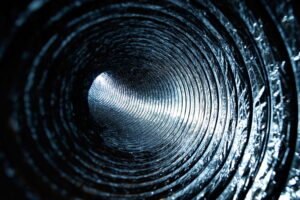Your ductwork has a very important job of carrying heated or cooled air into the rooms of your home. When you have ductwork leaks, that airflow is not reaching your home as it should. Some minor leaks can lead to a small amount of airflow escaping, while major ductwork leaks can lead to losing nearly all of your conditioned air.
And leaky ductwork is not just an inconvenience, it can actually cause major problems for your HVAC system and your home. Sometimes it’s as easy as making a repair, but other times you need air ductwork replacement in Jupiter, FL. Keep reading to learn more about the problems with leaky ductwork and how to address them.
Understanding Duct Leaks
First, it’s important to understand exactly what a duct leak is. Air can escape through the tiniest holes that are only pinprick size. If your air ducts lose just 20% of the heated or cooled air passing through your system, it can actually make your unit work as much as 50% harder to condition your home.
This means that you’re spending 50% more on your energy bills, and may not even be enjoying the results. Instead, you’re paying to heat or cool non-living spaces where your ductwork is located, which may be your attic or your basement. There are three typical types of duct leaks:
- Supply leak – This leak is located in the duct that moves air from the indoor air handler to your home’s living space.
- Equipment leak – It’s also possible to have a leak around your air handler itself, like your furnace cabinets.
- Return leak – This type of leak actually means that non-conditioned air is getting into your ductwork and circulated with the conditioned airflow.
Signs of Duct Leaks
One of the best ways to identify leaking ducts is by monitoring your utility bills. If you notice a sudden jump in your bills or your energy usage is creeping up persistently over time, your ductwork may be to blame. If air is leaking out, your HVAC system is using more energy and costing you more money.
You also want to monitor for rooms in your home that are significantly warmer or cooler than other areas of your home. Your HVAC system should distribute heated and cooled air evenly. Having a room that is a different temperature is a sign of an air duct leak.
The other sign of leaking air ducts is poor air quality. If you notice a lot of dust in your home, or the air feels heavy or smells musty, this can be because of damage to your ductwork that is allowing non-conditioned air into your home.
Addressing Duct Leaks
The good news is, most leaks can be fixed. Your air ducts are made up of a series of joints that are connected together using a special metallic tape or sealant. Most holes occur at these joints and can simply be resealed. However, if the damage is extensive and spread across your entire ductwork system, it may be time for a complete replacement.
Contact Mechanical Air Conditioning to schedule an appointment for your central air conditioning needs.

